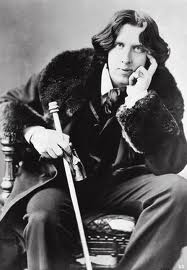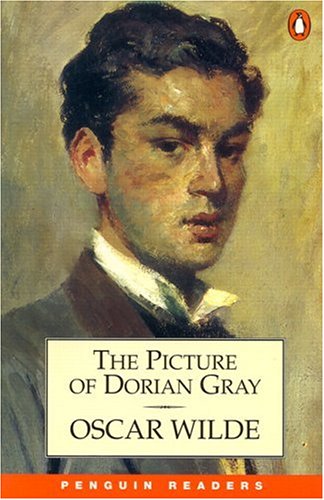Oscar Wilde has been one of the most famous writers of all time. His works have inspired a lot of others to take up writing. Originally christened as Oscar Fingal O’Flahertie Wills Wilde, he was a prolific writer from Ireland.
He has numerous poems, plays, fiction and essays to his name. He had shown his creativity and mettle in the different forms of literature.

He had composed various pieces during the 1880s and settled into being one of London’s most popular playwrights with the start of the 1890s. He is revered for his plays, epigrams and the novel The Picture of Dorian Grey. He was imprisoned under certain circumstances and did die an immature death.
Family and Early Life of Oscar Wilde
Oscar Wilde was born on October 16, 1854, in Dublin, Ireland. He was the second of the three Wilde siblings, born to Sir William Wilde and Jane Wilde. Her mother was an Irish nationalist and wrote poetry for Young Irelanders under the pseudonym Speranza. Her works and the poetry from Young Irelanders gave birth to a deep love for literature that Oscar developed over the ages.
Oscar’s elder William Wilde was a leading to-ophthalmologic surgeon from Ireland and was consequently knighted in 1864 for his services. The dispensary created by William became the forerunner for the Dublin Eye and Ear Hospital.
Young Oscar Wilde
Oscar Wilde got a preliminary education at home from a French bonne as well as a German governess until the age of nine. After that, Oscar Wilde got formal education from the Portora Royal School in Enniskillen of County Fermanagh. Wilde also had a sister named Isola who died of meningitis at a tender age of nine. Oscar had later dedicated the poem Requiescat in her memory.
Wilde attended college at the Trinity College in Dublin from 1871 to 1874. He had received the guidance of his mentor J.P. Mahaffy during this period and had also helped him write the book Social Life in Greece. Wilde also received a lot of knowledge from the University Philosophical Society, becoming an established member in a short amount of time.
Oscar was one of the outstanding students at the college and won the Berkeley Gold Medal, which was the highest academic award in Greek. He also won the demyship to Magdalen College in Oxford. Thereafter, he attended Magdalen College from 1874 to 1878.
Popular Works by Oscar Wilde
Oscar has written volumes in terms of literature. There have been poems, novels, plays, epigrams and others. The following are the works of Wilde in their chronological order:

- Ravenna (1878) – The poem has seven parts and describes a person who has landed in a city. The poem starts with memories of the country and it ends with a salute to the city.
- Poems (1881) – The first collection of poems written by Wilde was published during this time. He visited the United States for a lecture tour in 1882. These poems served as a springboard.
- Stories and Tales (1888) – A collection of short stories were published for children that consisted of titles like “The Nightingale and the Rose”, “The Selfish Giant”, “The Happy Prince”, “The Devoted Friend” and “The Remarkable Rocket”.
- The Decay of Living (1889) – One of the most famous essays by Wilde, it presents two characters Vivian and Cyril engulfed in a conversation. Wilde presents the essays in a Socratic dialogue, where the characters are having s playful and whimsical conversation. The essay promotes Romanticism over Realism as Wilde’s view.
- The Picture of Dorian Gray (1891) – This has been the only full-length novel from Wilde and had gone through a lot of scrutinies in his days, surviving them all to become a classic work of fiction.
- Another Collection of Short Stories (1891) – A collection of short and semi-comic stories that included “Lord Arthur Savile’s Crime”, “The Sphinx Without a Secret”, “The Canterville Ghost” and “The Model Millionaire”.
- Intentions (1891) – This was another collection of essays and featured a revised version of “The Decay of Lying”.
- Salome (1891) – The play is about the Biblical story of Salome, who was the stepdaughter of the tetrarch Herod Antipas. She requests the head of Jokanaan on a silver platter as the reward for the dance of the seven veils.
- The House of Pomegranates (1892) – Another collection of short stories featuring “The Birthday of the Infanta”, “The Young King”, “The Star-Child” and “The Fisherman and His Soul”.
- Lady Windermere’s Fan (1892) – A four-act comedy that satirizes the morals of society.
- A Woman of No Importance (1893) – A play that satirized the English upper-class society.
- The Duchess of Padua (1893) – The Duchess of Padua was a five-act melodramatic tragedy set in Padua and was written in blank verse.
- The Sphinx (1894) – The poem talks about the thousand weary centuries of history behind the Sphinx.
- An Ideal Husband (1895) – It was a comedic play that revolved around blackmail and political corruption.
- The Importance of Being Earnest (1895) – The play is a farcical comedy where the protagonists maintain fictitious personae and escape social obligations. The major themes of the play include the triviality with which institutions like marriage were treated in Victorian society.
- De Profundis (1897) – It was a letter in whose first half Wilde recounts a previous relationship that had led to the conviction of Wilde and imprisonment. The second half talks about spiritual development in prison.
- The Ballad of Reading Gaol (1898) – It was written during Wilde’s imprisonment. He was sentenced to two years of hard labor in prison after being convicted of homosexual offenses.
List of Complete works of Oscar Wilde
Oscar Wilde – Short Story Category
• Birthday of the Infanta, The from ‘A House of Pomegranates’
• Canterville Ghost, The
• Devoted Friend, The
• Fisherman and his Soul, The from ‘A House of Pomegranates’ collection
• Happy Prince, The
• Lord Arthur Savile’s Crime
• Model Millionaire, The
• Nightingale and the Rose, The
• Portrait of Mr. W. H., The
• Remarkable Rocket, The
• Selfish Giant, The
• Sphinx Without a Secret, The
• Star-Child, The from ‘A House of Pomegranates’
• Young King, The from ‘A House of Pomegranates’
Fiction/Novel Category
• Picture of Dorian Gray
List of Oscar Wilde’s Essays
• American invasion, The
• Anglo-Indian’s Complaint, An
• Art And The Handicraftsman
• Art at Willis’s rooms
• Beauties of Bookbinding, The
• Close of the Arts and Crafts, The
• Critic as Artist, The
• De Profundis
• Decay of Lying: An Observation, The
• English Poetesses
• English Renaissance Of Art, The
• Ethics of Journalism, The
• Grosvenor Gallery, 1877, The
• House Decoration
• House of Pomegranates, A
• Keats’s Sonnet on Blue
• L’envoi
• Lecture To Art Students
• Letter To Joaquin Miller
• Letters on Dorian Gray
• London Models
• Miscellaneous Aphorisms
• More Radical Ideas Upon Dress Reform
• Mr Morris on Tapestry
• Mr Whistler’s Ten O’Clock
• Mrs. Langtry as Hester Grazebrook
• Pen, Pencil, and Poison
• Poems In Prose
• Printing and Printers
• Puppets And Actors
• Relation of Dress to Art. A Note in Black and White on Mr. Whistler’s Lecture, The
• Reviews
• Rise of Historical Criticism, The
• Sculpture At the Arts and Crafts
• Selected Prose of Oscar Wilde
• Shorter Prose Pieces
• Soul of Man under Socialism, The
• Tomb of Keats, The
• Truth of Masks – A Note On Illusion, The
• Unity of the Arts. A Lecture and a Five O’Clock, The
• Women’s Dress
Play Category
• Duchess Of Padua, The A play/drama
• Florentine Tragedy – A Fragment, A
• For Love of the King, a Burmese Masque A short play
• Ideal Husband, An A comedy/drama play
• Importance of Being Earnest, The A comedy play
• Lady Windermere’s Fan A play/drama
• Sainte Courtisane – A Fragment, La
• Vera; Or, The Nihilists Melodrama play
• Woman of No Importance, A A comedy/drama play
List of Oscar Wilde’s Poems
• Amor Intellectualis
• Apologia
• At Verona
• Athanasia
• Ave Imperatrix
• Ave Maria Gratia Plena
• Ballad of Reading Gaol, The
• Ballade De Marguerite (Normande)
• Bella Donna Della Mia Mente, La
• Burden Of Itys, The
• By The Arno
• Camma
• Canzonet
• Chanson
• Charmides
• Desespoir
• Dole Of The King’s Daughter (Breton), The
• E Tenebris
• Easter Day
• Endymion (For Music)
• Fabien Dei Franchi
• Flower of Love
• From Spring Days To Winter (For Music)
• Fuite De La Lune, La
• Garden Of Eros, The
• Grave Of Keats, The
• Grave Of Shelley, The
• Greece
• Harlot’s House, The
• Helas!
• Her Voice
• Holy Week At Genoa
• Humanitad
• Impression De Voyage
• Impression Du Matin
• Impression–Le Reveillon
• In The Forest
• In The Gold Room–A Harmony
• Italia
• Jardin, Le
• Jardin Des Tuileries, Le
• Les Ballons
• Les Silhouettes
• Libertatis Sacra Fames
• Louis Napoleon
• Madonna Mia
• Magdalen Walks
• Mer, La
• My Voice
• New Helen, The
• New Remorse, The
• On The Massacre Of The Christians In Bulgaria
• On The Sale By Auction Of Keats’ Love Letters
• Pan–Double Villanelle
• Panneau, Le
• Panthea
• Phedre
• Portia
• Quantum Mutata
• Queen Henrietta Maria
• Quia Multum Amavi
• Ravenna
• Requiescat
• Rome Unvisited
• Roses And Rue
• San Miniato
• Santa Decca
• Serenade (For Music)
• Silentium Amoris
• Sonnet On Approaching Italy
• Sonnet On Hearing The Dies Irae Sung In The Sistine Chapel
• Sonnet To Liberty
• Sphinx, The
• Symphony In Yellow
• Taedium Vitae
• Theocritus–A Villanelle
• Theoretikos
• To Milton
• To My Wife–With A Copy Of My Poems
• Tristitiae
• True Knowledge, The
• Under The Balcony
• Urbs Sacra Aeterna
• Vision, A
• Vita Nuova
• With A Copy Of ‘A House Of Pomegranates’